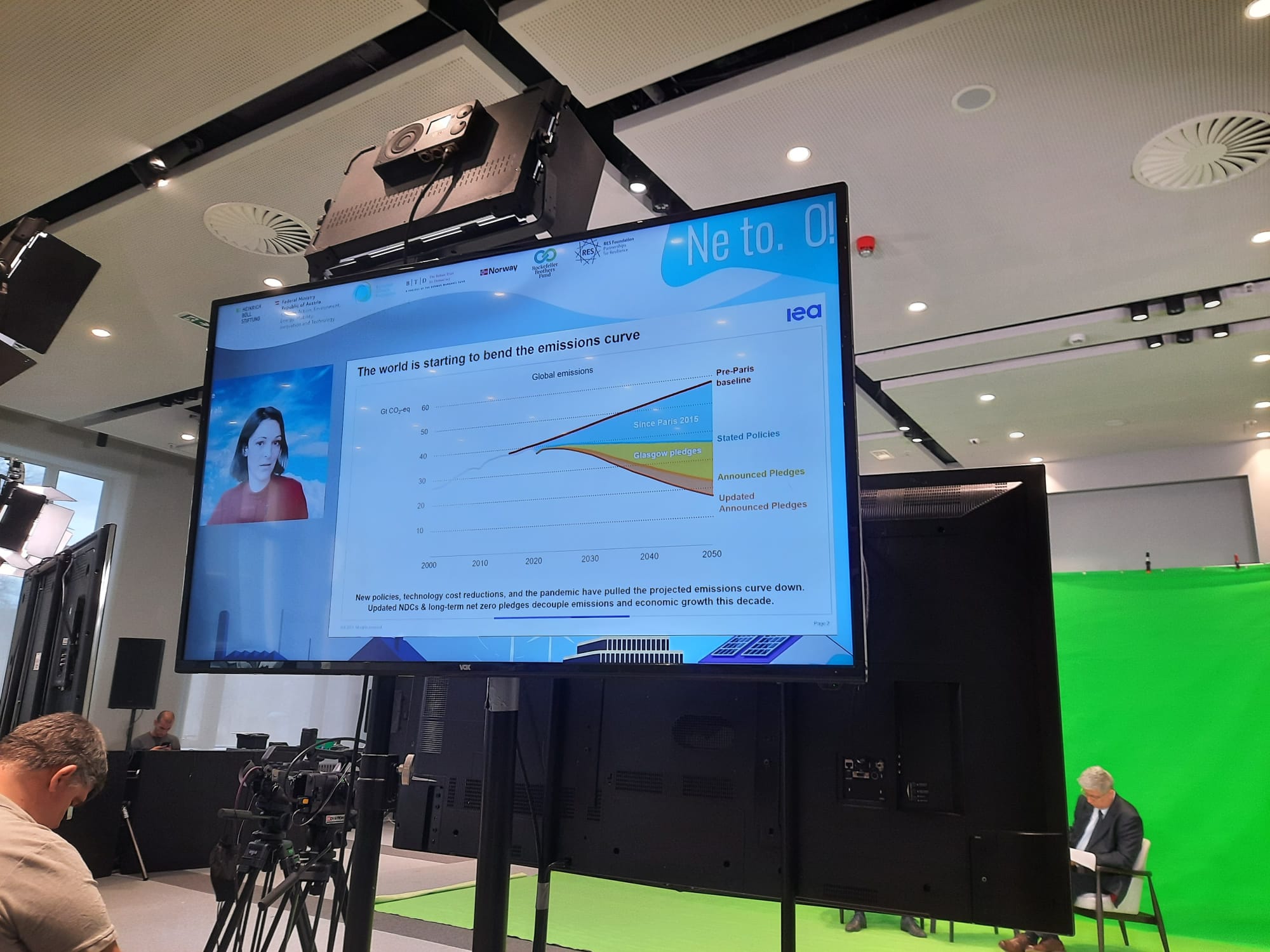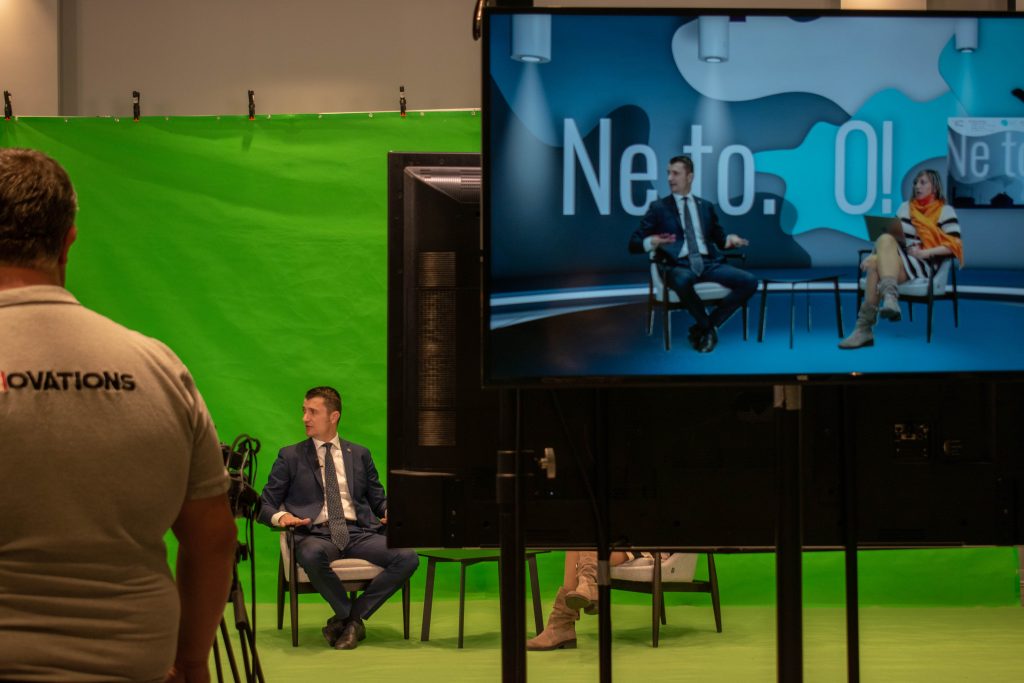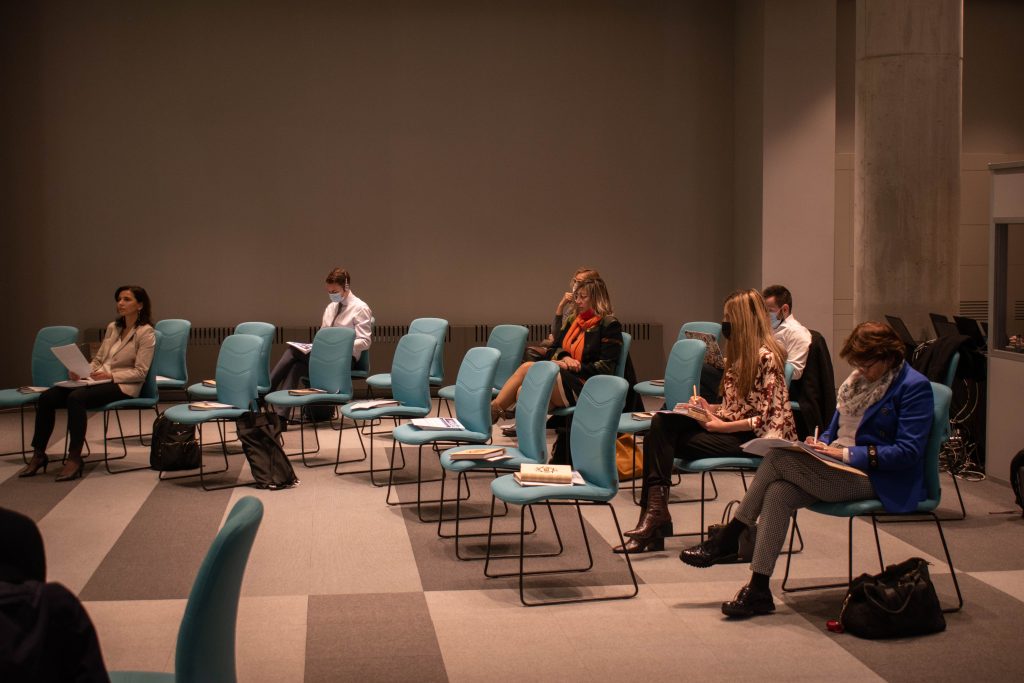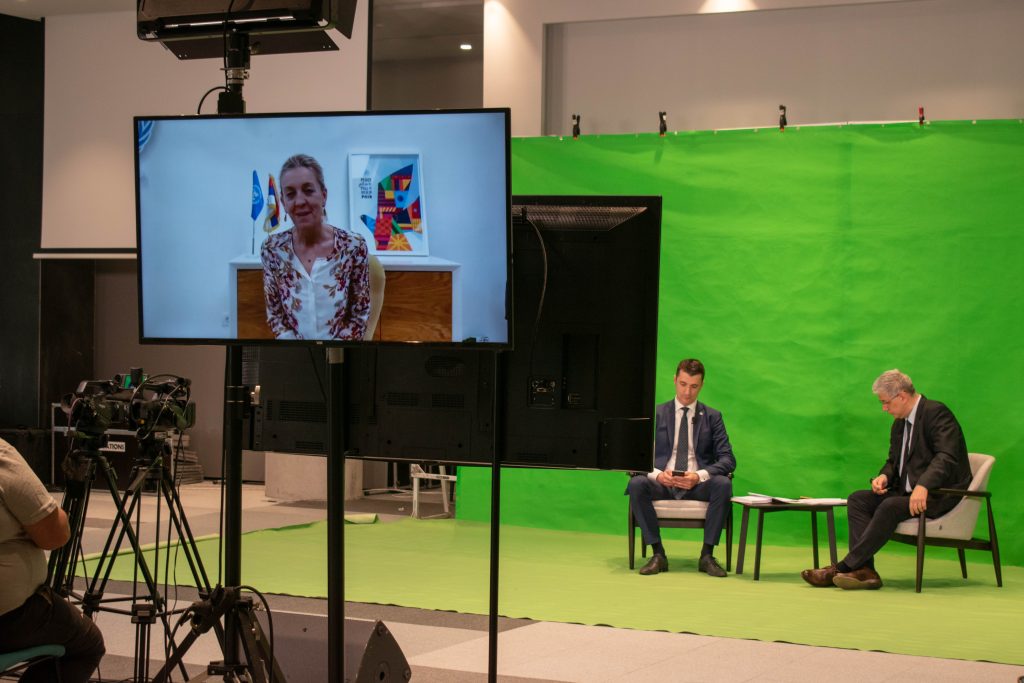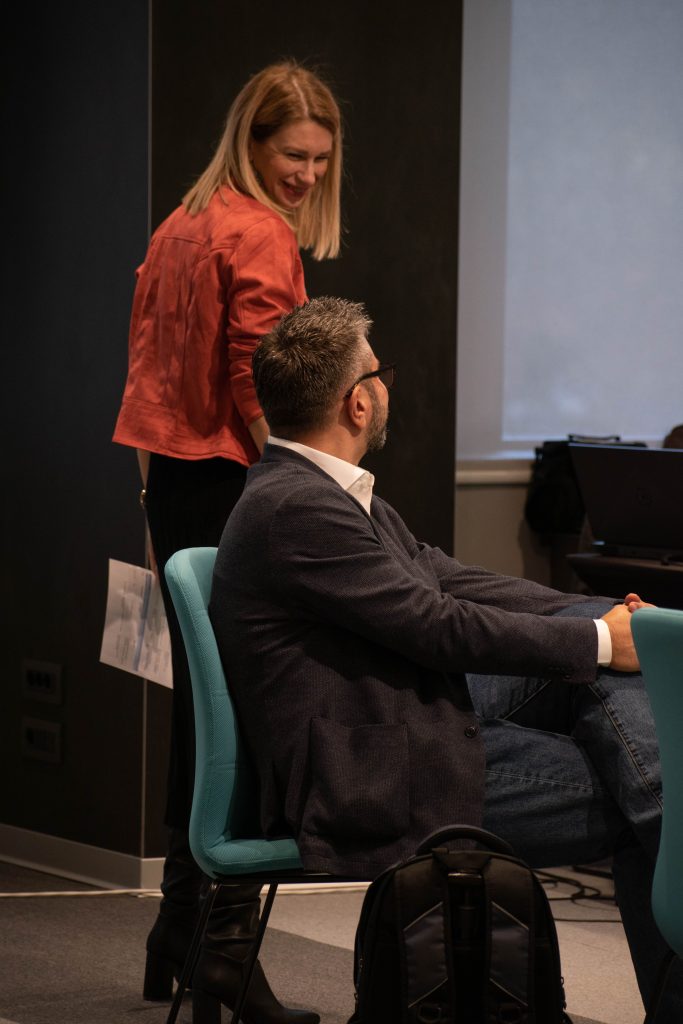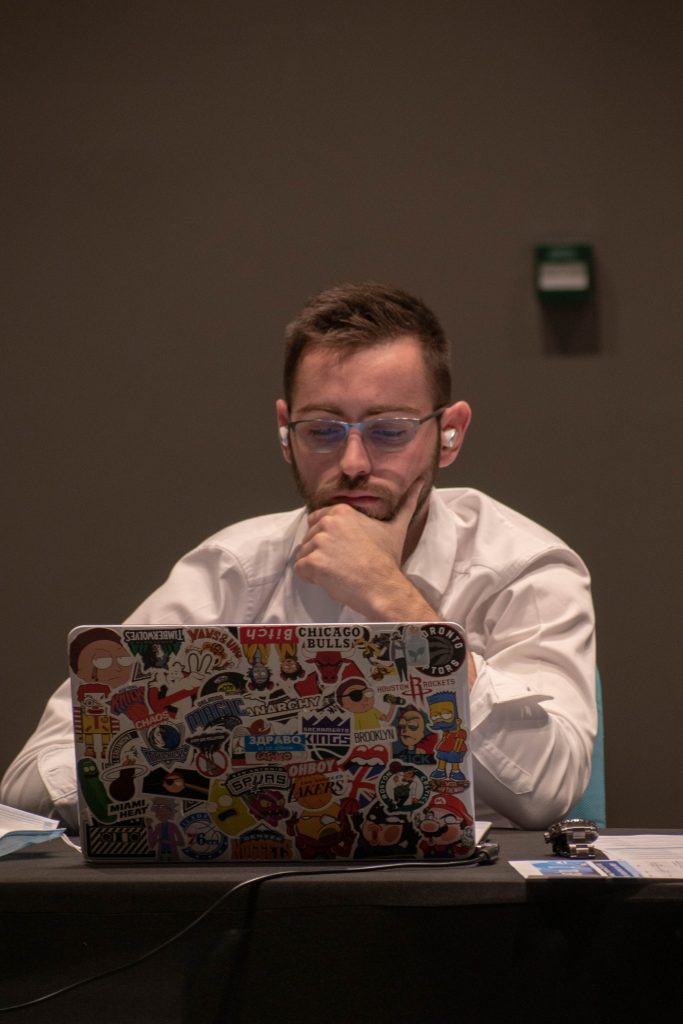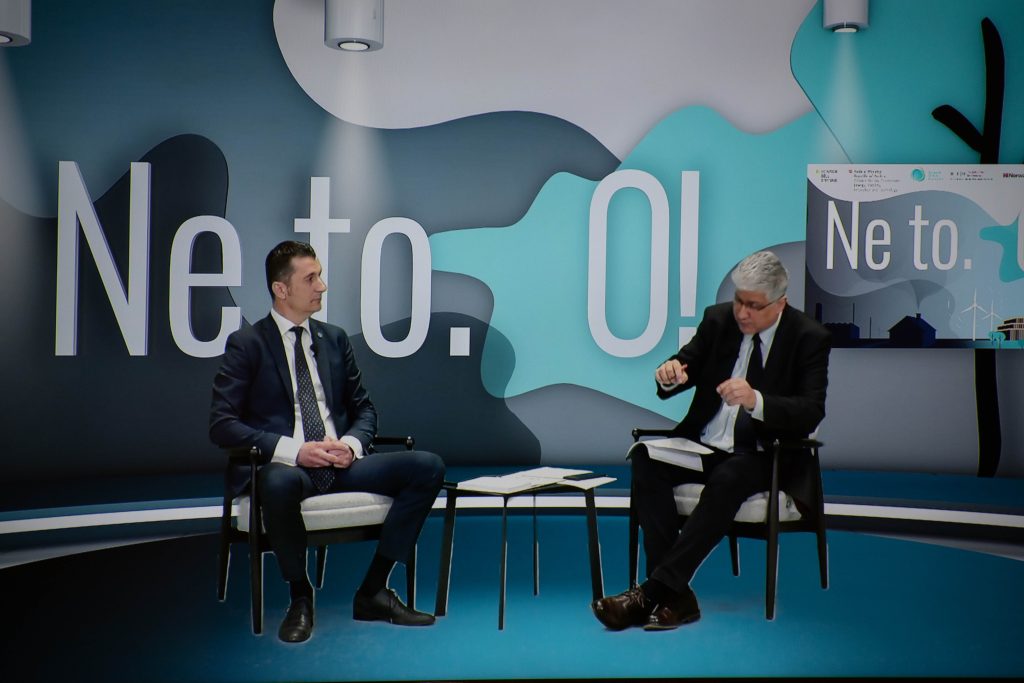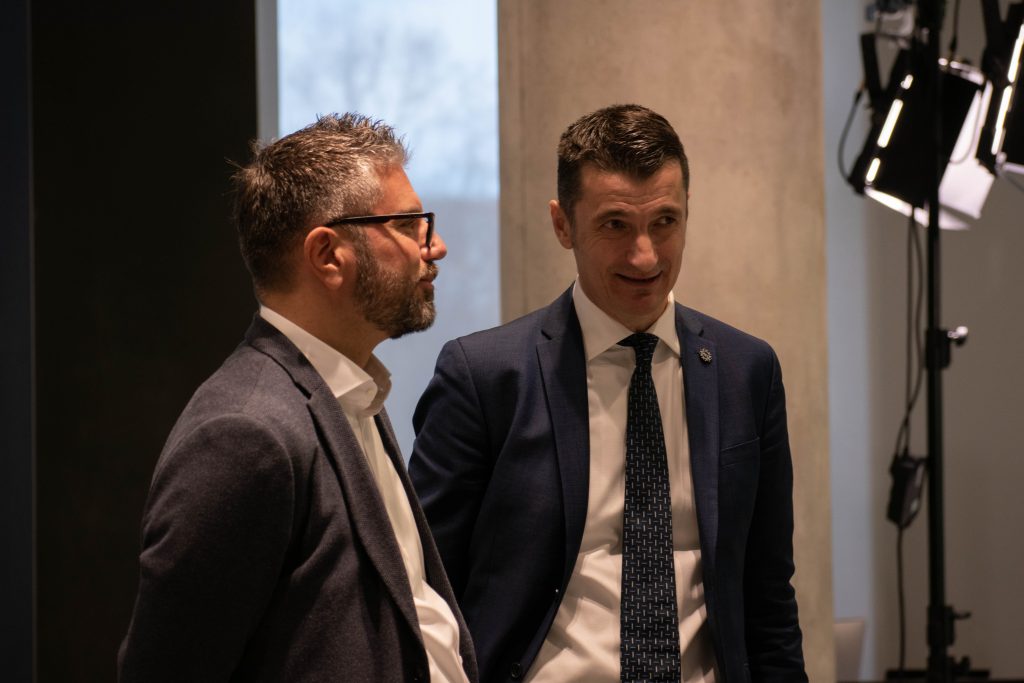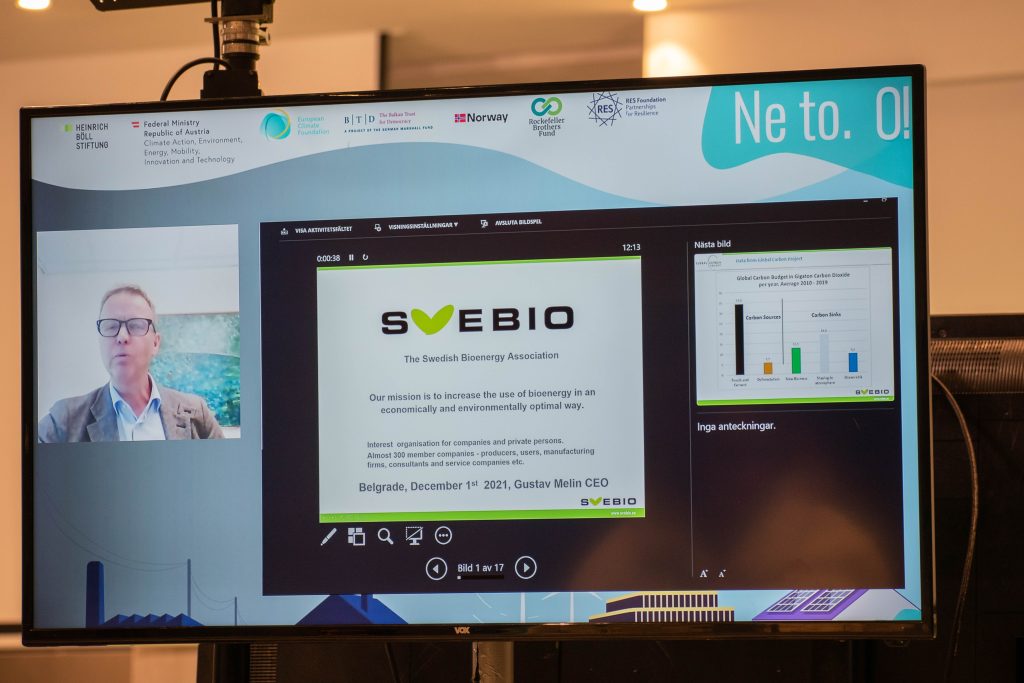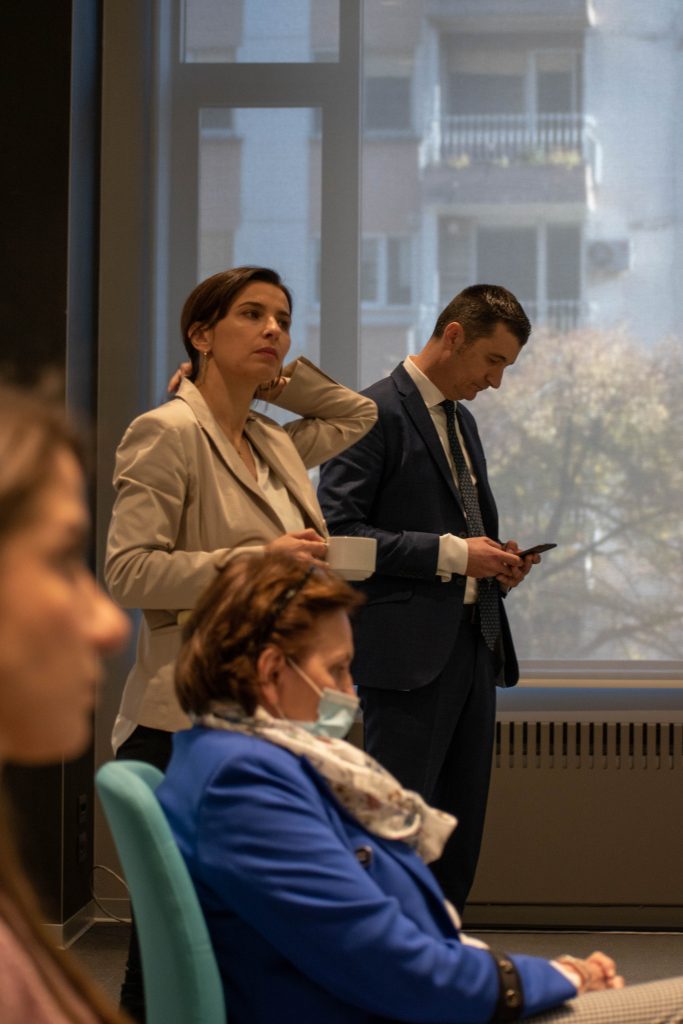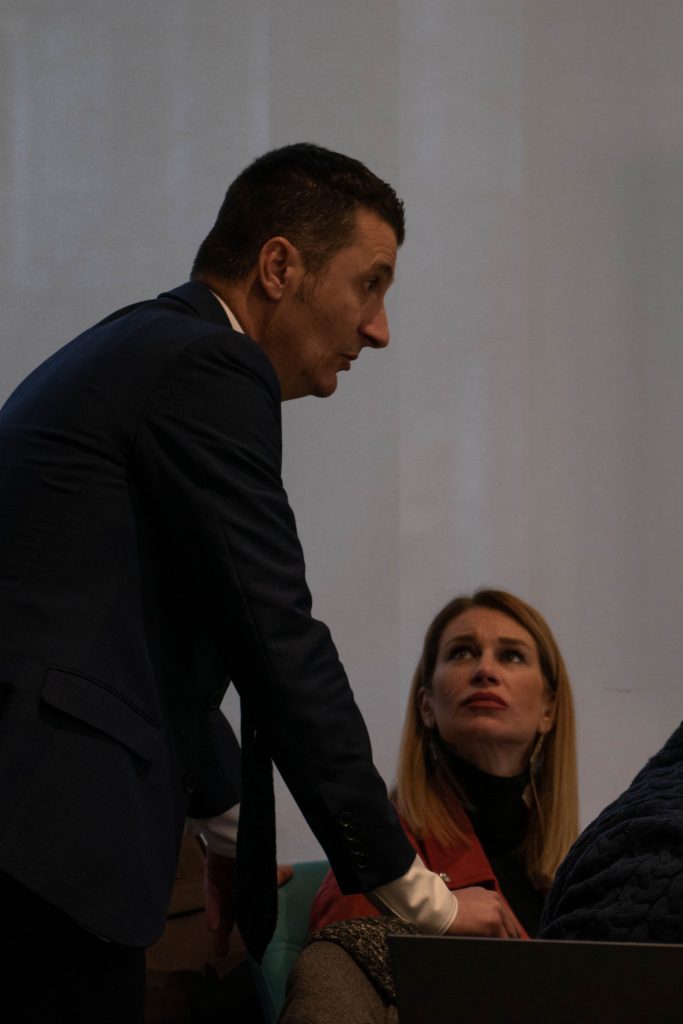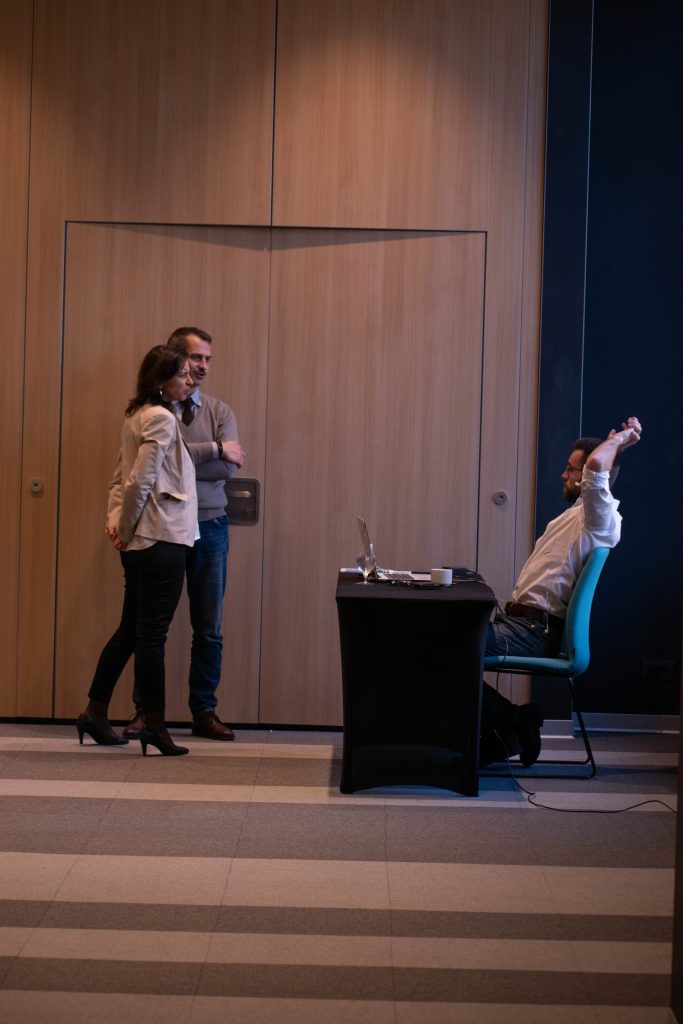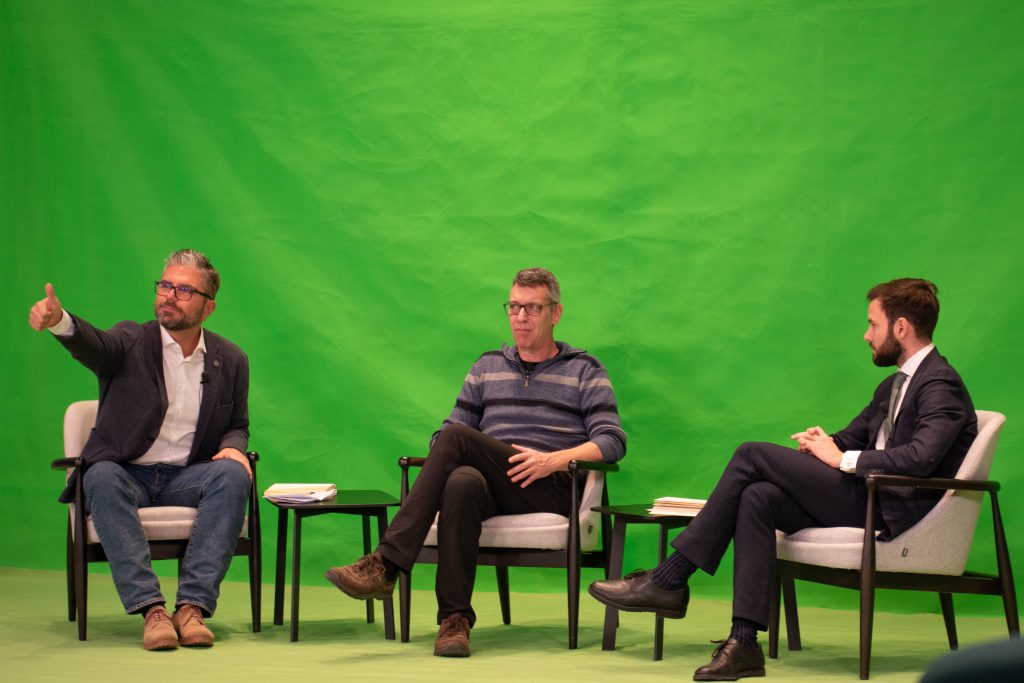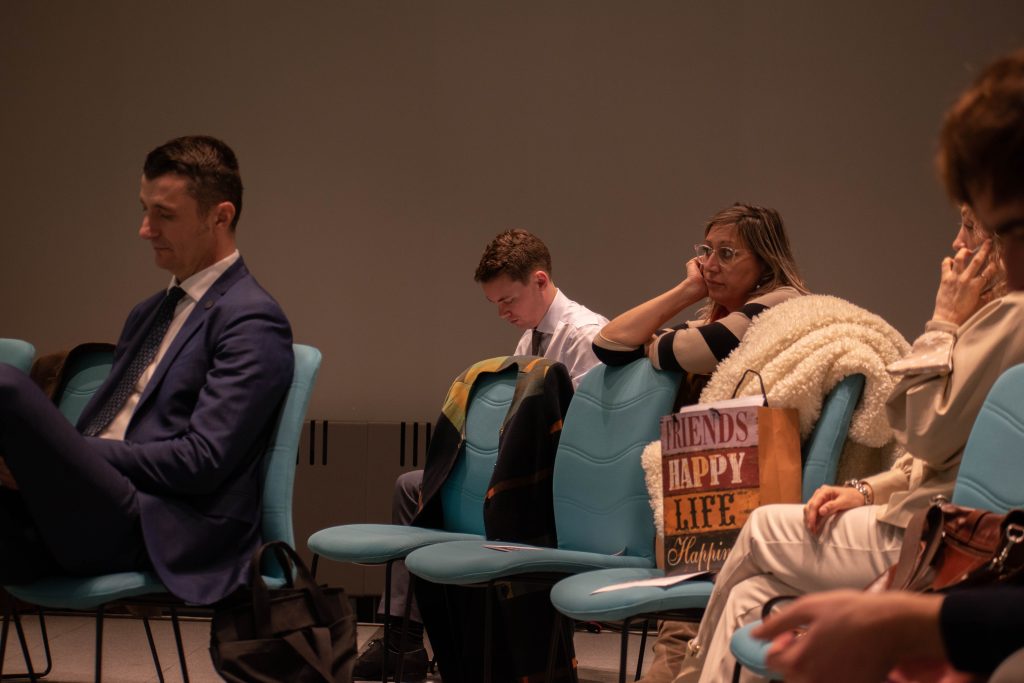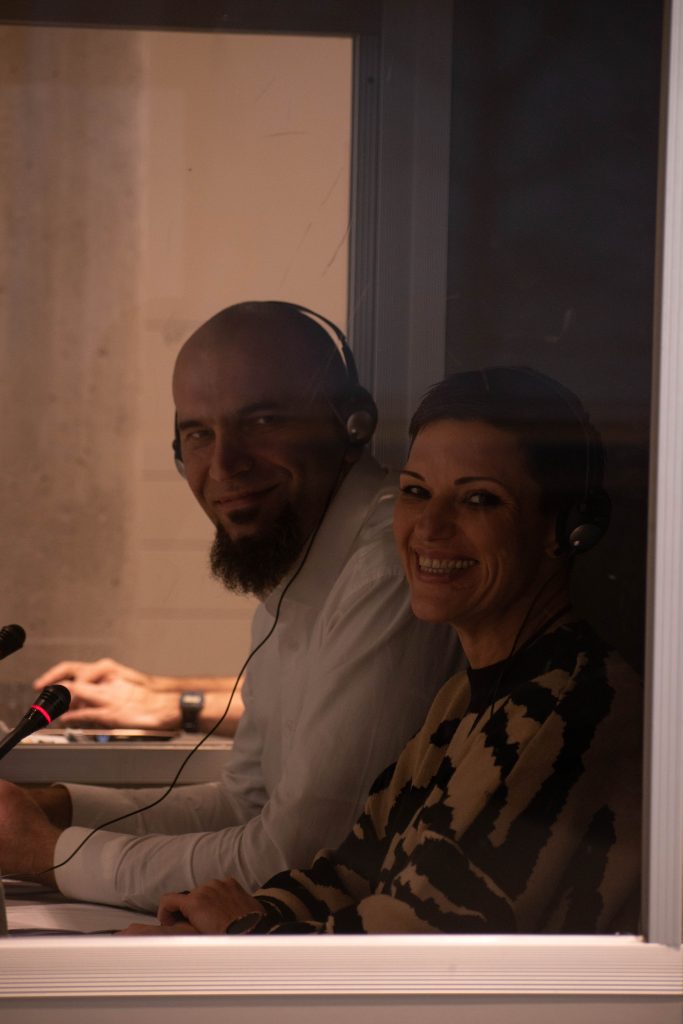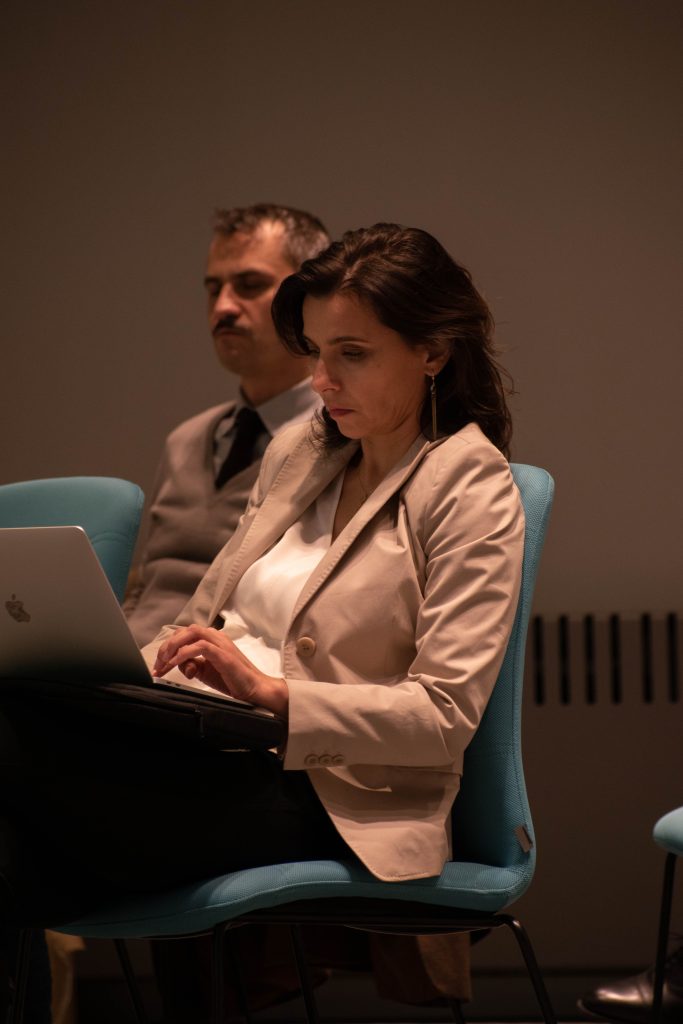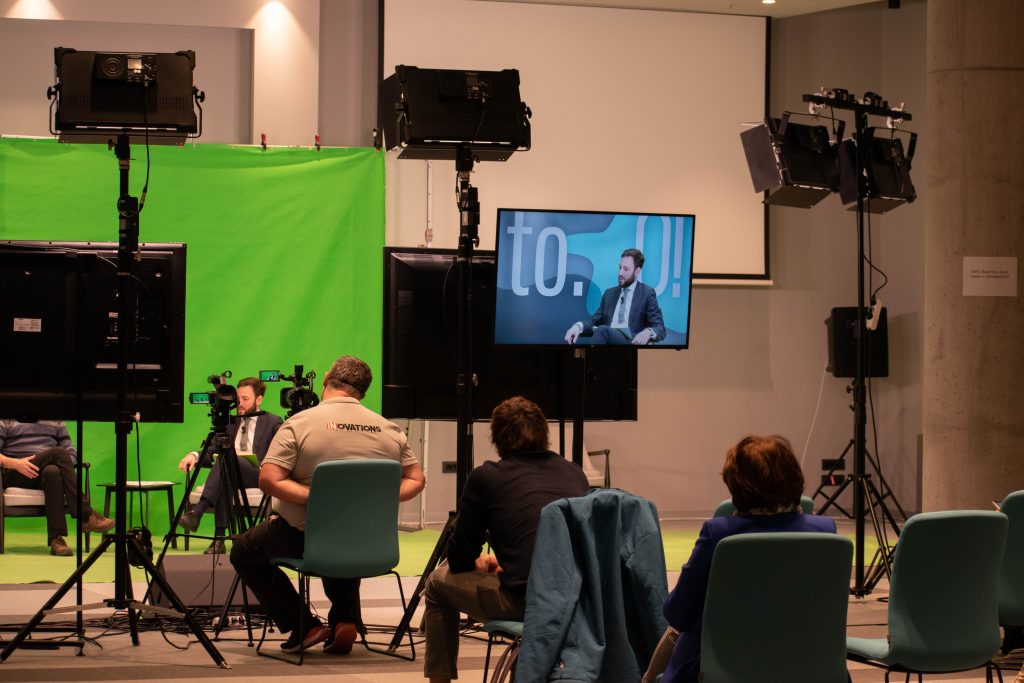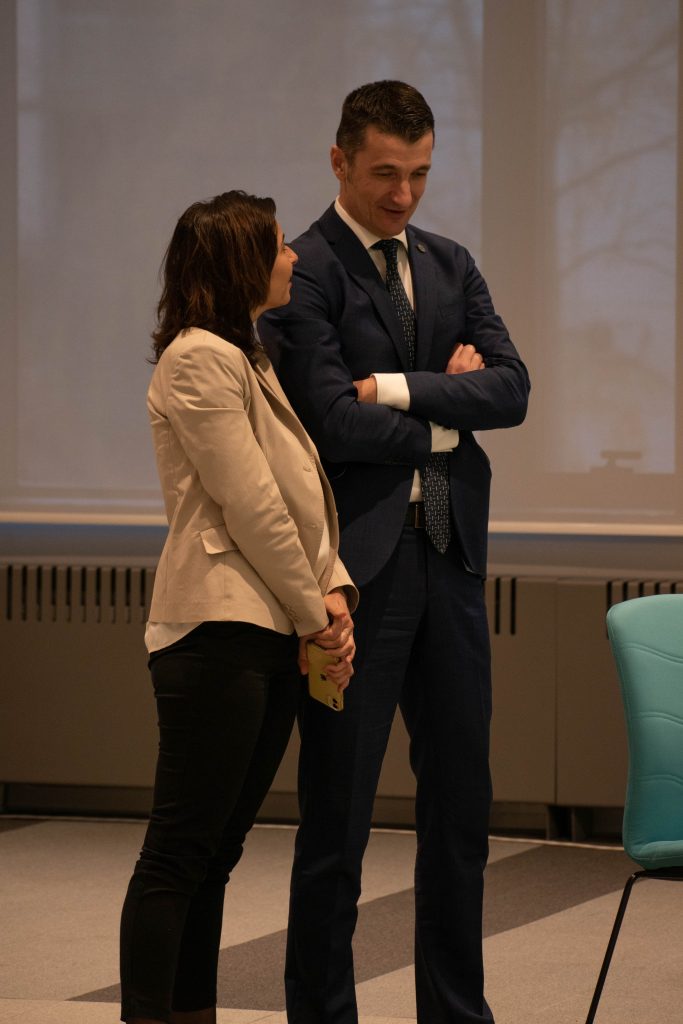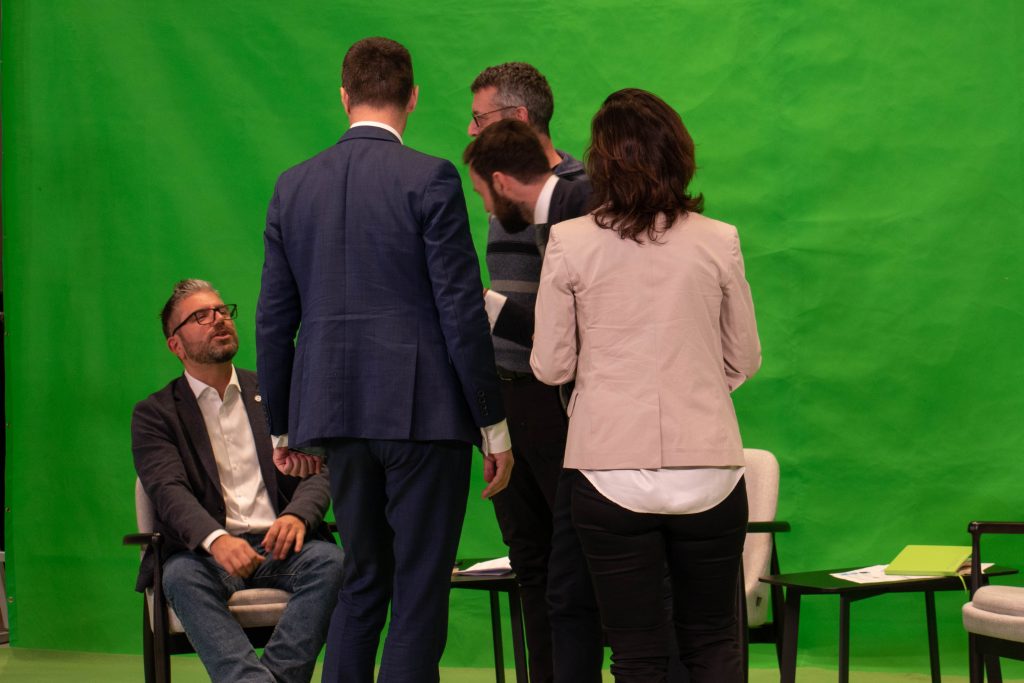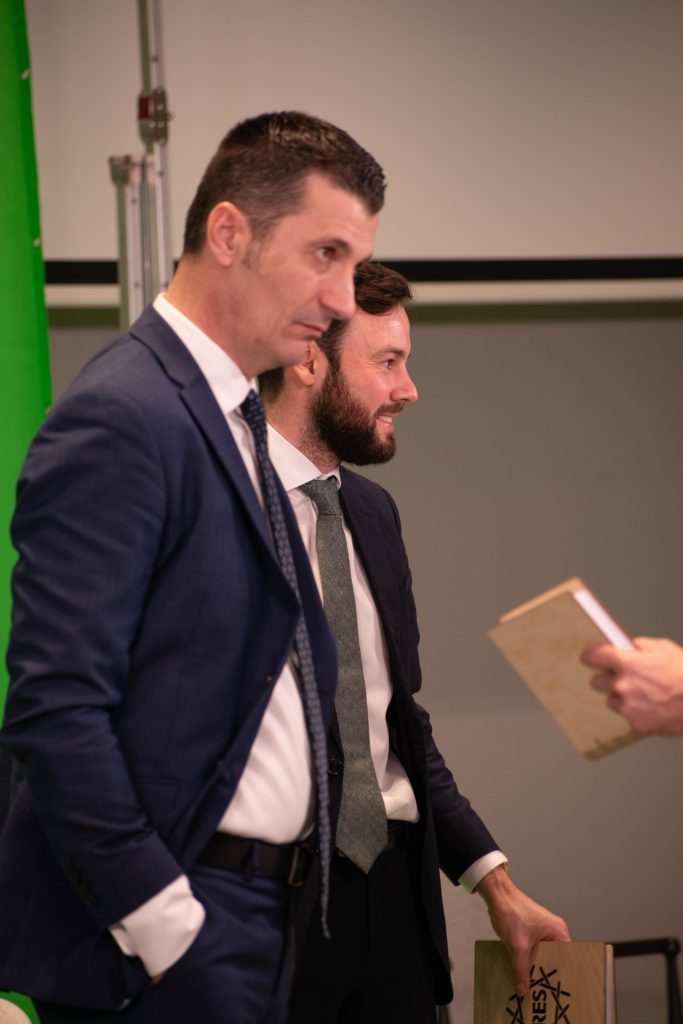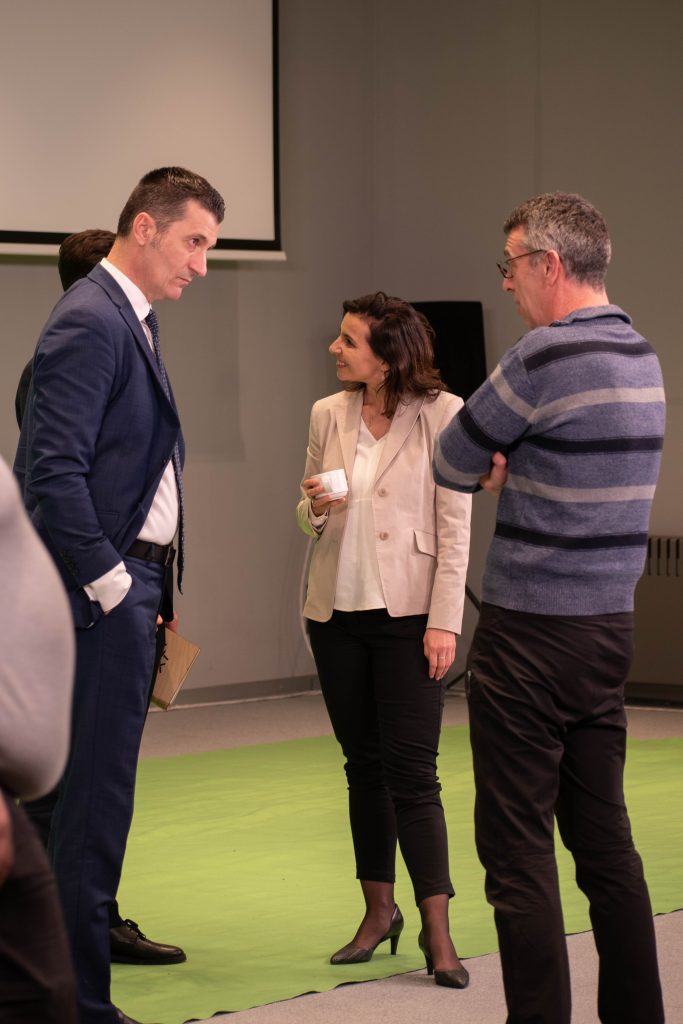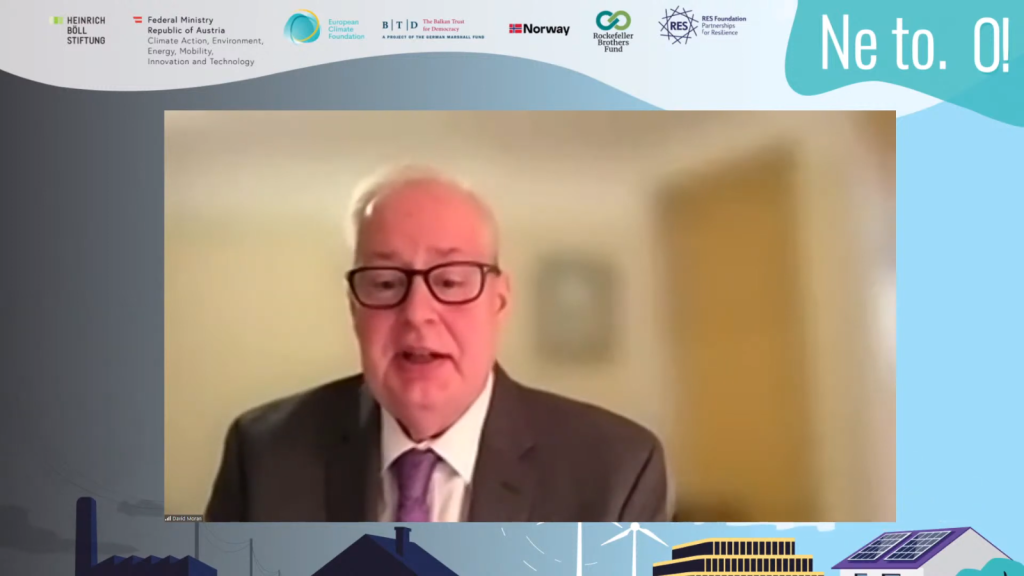The second annual policy conference on how to win the Balkan air-pollution dodgeball hosted by the RES Foundation, was held on 1 and 2 December 2021. This year’s conference was focused on helping policy makers and other stakeholders in and outside of the region to break out of existing policy comfort zones and face up to growing evidence that a carbon-neutral future is not only feasible but also reachable via a variety of policy routes.
Conference “Ne to. 0!” served eminent experts of different profiles and from different regions as a platform for exchanging knowledge, opinions and experiences on ways to accelerate energy transition, primarily in the Western Balkans, and then also globally.
The first day was dedicated to the decarbonisation of the energy sector; to path, technology and principles, as well as capacities to achieve carbon neutrality in the electricity generation. The conference was opened by the Programme Director of the RES Foundation, Aleksandar Macura, presenting the goal, format, agenda and context of the conference. He singled out two key goals: keeping global warming below 1.5°C and lowering air pollution below the World Health Organization limit values, noting that policies that now act as major challenges will work feasibly in a few years, and that it is crucial to start conversation on topics, encourage thinking, inspire initiative.
The Secretary of the Ministry of Mining and Energy, Maja Matija Ristić, referred to the activities that the state is implementing in the process of energy transition, such as incentive measures for prosumers and measures to increase energy efficiency. David Moran, COP26’s regional ambassador to Europe, Central Asia, Turkey and Iran, painted a “postcard” from Glasgow from the UN Climate Change Conference. He assessed the Glasgow Pact as a key moment in climate policy since the Paris Agreement, due to the consensus on the urgency of accelerating climate action and firm commitment to limiting the rise of global temperature to 1.5° C. Speaking about financing, he emphasized the importance of a fair transition from coal to green energy and the necessary involvement of all countries in these processes.
World on the move – to 0!
The first panel, which was moderated by Mr. Macura, gave the current overview of the situation when it comes to the path to zero carbon emissions. The UN Resident Coordinator in Serbia, Francoise Jacob, spoke about the need to turn politics into action as soon as possible, the need for a fair and people-oriented transition, and the absolute necessity for different communication strategies, through a positive narrative that has form of a call for joint shaping of our future.
Yasmine Arsalane, a senior analyst at the International Energy Agency, shared the presentation of the Roadmap for the Global Energy Sector to Carbon Neutrality by 2050. Until the Paris Agreement, we had a global temperature increase of 3.5°C; it is now reduced to 2.6°C. Ms. Arsalane singled out this decade as a turning point when it comes to global emissions, where we will soon reach the peak, which will be followed by a period of steady decline, if the countries keep their promises from Glasgow. She emphasized the need to eliminate fossil fuels and ban new coal-fired power plants, and pointed to the contribution to emissions reduction that the reconstruction and improvement of existing capacities, as well as shutting down before the end of the life of those plants could have. The International Energy Agency promises security of electricity supply.
Thomas Waitz, a representative of the European Parliament, also agreed with the statement on the necessity of ending the financing of energy production from fossil fuels, emphasizing that for the first time COP26 unequivocally pointed them out as the causes of global warming. Apart from mitigation, adaptation is also necessary, since certain parts of the world are already severely affected by climate change. He sees the path of the European Union as an indicator to the world that it is possible to switch from announcements to concrete actions, but criticizes the insufficient determination to reverse the trend of deforestation by 2030 at the latest, because that trend can be reversed immediately.
Xiang Li, a researcher at the Institute of Energy of the University of Beijing, spoke about China’s commitment to climate neutrality and the challenges it faces in trying to phase out coal. Half of the world’s coal consumption is in China, while almost 90% of the country’s carbon dioxide emissions come from coal. The deadline set for achieving carbon neutrality is 2060, while as early as 2021, China will stop financing projects related to coal outside its country.
Aleksandar Kovačević, a senior visiting research fellow at the Oxford Institute for Energy Studies, criticized the Western Balkans’ lack of commitment to energy transition through failing to meet their obligations from national emission reduction plans. Kovačević warned that the application of these documents in their current form would actually lead to an increase in carbon dioxide emissions per unit of electricity produced and per unit of coal. He cited the coal-fired power plant in Pljevlja as an example of negative practice. According to his assessment, the continuation of technical failures in coal mines, transportation systems and thermal power plants could become an opportunity to invest in energy from renewable sources.
David Livingston, a senior adviser in the Office of the US Special Envoy for Climate John Kerry, gave an insight into US climate policy and his review of the Glasgow conference.
The technology for “Ne to, 0!”
The second panel focused on technology that could enable the transition to net zero emissions and renewable energy sources. Nikola Stamenov, Development Director of CWP Global for Serbia, spoke about the 150 MW solar power plant project, the first to be certified for nature protection. He pointed out that the previous years were great for renewable energy sources, because the prices of electricity produced from green sources are falling rapidly. Today, with the exception of perhaps large hydro capacities, the cheapest electricity is produced from wind and sun, and businesses do not care where the energy comes from, as long as it is cheap.
Edo Jerkić, CBDO of the company Megajoule, spoke precisely about the steps that can accelerate the energy transition, as well as about solutions and ways of energy storage, the inclusion of the transport sector and other sectors. He pointed out that it is necessary to use solar panels and wind power plants wherever possible, to use bioenergy in appropriate places. He mentioned the digitalization of the energy sector as important factor, as well as making the electricity market functional.
The role of biomass in Swedish energy, which does not use fossil fuels, was presented by Gustav Melin, CEO of the Swedish company Svebio. Sweden got its biomass from forests, so there is no demand for energy crops at the moment. E3 International President Bonnie Norman spoke about the importance of energy crops, especially fast-growing energy willow crops, in the context of the possibility of using biomass for energy in the Western Balkans in order to achieve climate goals. As a positive side of energy crops, Norman pointed out the creation of jobs for a fair transition. Lignite, which is burned in the Balkans, is about 70% less efficient compared to energy willow, and in Serbia alone there are 1.6 million hectares of abandoned or degraded land that could be used for plantations.
The panel on technology presented the difference between the difficult and the impossible. Technology is already largely already present, and the two factors on which implementation depends are the economy and political will.
The principles of “Ne to, 0!”
The last panel of the first day, whose moderator was the executive director of RES Foundation, Stevan Vujasinović, tried to set out the key principles which should be the ground for the future sustainable development. Priority among the principles is to ensure that no one is left behind. The regional director of the Heinrich Böll Foundation, Simon Ilse, explained that this principle implies that no state, no region, no vulnerable group should be excluded from the process of transition. He believes that it is impossible otherwise, because the transition cannot be the privilege of the rich, it must go through all sectors and through all parts of society. It puts the economy and ecology side by side. The mechanism of fair transition is integrated as crucial part of the European Green Deal and all transition plans derived from it.
We heard lessons on managing a fair transition on the example of Greece from Nikos Mantzaris, a partner and senior policy analyst at The Green Tank. Greece is rapidly improving its climate performance compared to other EU countries and plans to close all but one of its coal-fired plants by 2023, and the last one in 2028. According to a draft Greek climate law that has been submitted to public debate, Greece has the goal to achieve carbon neutrality by 2050 at the national level, and emissions reduction of 55% by 2030 compared to 1990. The challenge for a fair transition will be two regions of lignite.
According to Wendel Trio, a climate change policy and science analyst, former Director of Climate Action Network (CAN) Europe, important principles are ambition and long-term planning when it comes to climate policy. A systematic and timely approach is needed, as well as transition that will span through the entire economy, in all sectors and regions. He also mentioned democratization and the involvement of people in decision-making processes, while those affected by the transition, such as miners, must have support. It is necessary to adapt not only the technology, but also the human habits and lifestyle. According to the UNDP report, if we do not achieve reduction of temperature rise to the acceptable levels, the impact on Serbian economy will be enormous.
From the point of view of health as the absolute priority spoke Elizabet Paunović, environmental and occupational health expert. One million lives worldwide could be saved each year if the goals agreed in the Paris Agreement are met. The estimate refers to the lives lost by the direct consequences of climate change, and if we succeed in improving air quality, that number could be even higher, given the fact that 7 million deaths a year are attributed to the consequences of air pollution.
Branko Čečen, director of the Center for Investigative Journalism in Serbia (CINS), spoke about the importance of the principle of transparency in a time of declining democracy at the global level, let alone in the dysfunctional democracy that exists in Serbia. It is necessary to provide citizens access to correct information, which is increasingly difficult for the media in Serbia, because they face concealment and obstruction at every step. When it comes to climate change, it will soon be necessary for the media to distribute ready, clear and accurate facts to the citizens. Čečen stated that the level of responsibility of the country for the health of citizens is best read through the fact that, due to the non-functioning of the official network for measuring air quality, there are many alternatives.
During the last panel of the first day of the conference, the principles of decentralization and digitalization of energy, the principle of education, intergenerational justice were also mentioned.

